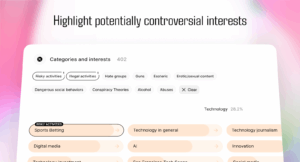Happy 10th Birthday Firefox!
Key Takeaways
- On September 23, 2012, Mozilla Firefox celebrated its 10th anniversary, marking a decade since the experimental browser project, then known as Phoenix, was released. The browser was developed by Blake Ross, Dave Hyatt, Pierre Chanial, and Joe Hewitt.
- The browser has undergone several name changes due to trademark issues, finally settling on “Firefox” in February 2004. Since its inception, Firefox has overtaken Internet Explorer 6 in terms of standards support, stability, speed, and functionality. It has also introduced a thriving set of add-ons, providing developers with tools that were previously lacking.
- Despite a decrease in usage, Firefox still accounts for 23% of the browser market. It remains the best development browser, with a quantity and quality of add-ons created by web developers for web developers that is unsurpassed. As an independent, open-source organization, Mozilla is not influenced by commercial requirements or shareholder demands, making Firefox the only browser of its kind.
On September 23, 2012 Mozilla Firefox celebrated its tenth birthday. Or, more specifically, the browser project which ultimately became Firefox was released on September 23, 2002.
Phoenix, as it was then known, was an experimental browser developed by Blake Ross, Dave Hyatt, Pierre Chanial and Joe Hewitt. The amusing version 1.0 (Pescadero) release page remains live today and you can even download the installation (extract and run — no user-friendly installers here).
There have been a few obvious interface changes in the past decade, but features such as tabs, preferences and the JavaScript console remain recognizable.
The 2002 Browser Market
In 2002, Internet Explorer 6.0 reigned supreme with a 90%+ market share. Microsoft’s business tactics may have been questionable, but IE had little competition:
- Opera was good and had a passionate following, but the commercial software was more expensive than the alternatives.
- Netscape 4.x was an abomination. It’s few remaining users were ditching the old browser.
- The Netscape 6+ and Mozilla 1+ suites used the same code base and were slow, buggy and bloated. Few people needed a multi-megabyte installation which contained a browser, email client, newsgroup reader, address book, chat client, web page editor, developer tools and Palm Pilot synchronization.
Despite the hassle IE6 caused in later years, the browser’s success was largely deserved.
Phoenix Rises From the Ashes
Phoenix evolved because the developers believed Netscape’s commercial requirements and Mozilla’s scope creep compromised the browser’s future. They wrapped the Gecko rendering engine in a lightweight shell, removed unnecessary features and introduced the concept of add-ons.
If you think Firefox releases appear rapidly today, Phoenix 0.2 was released within one week. Version 0.3 appeared on October 16 2002, 0.4 on October 31 and 0.5 on December 7. The browser had started to gain momentum in the developer community. Like many, I had it installed although still used IE6 as my default.
Following trademark issues with Phoenix Technologies, the browser was renamed “Firebird” and version 0.6 appeared on May 16, 2003 for Windows, Mac and Linux. Versions 0.6.1 and 0.7 appeared in July and October 2003 respectively. These editions changed everything:
- the browser had overtaken IE6 in terms of standards support, stability, speed and functionality
- a thriving set of add-ons also provided developers with tools that had been sorely lacking
- while it was still a beta release, developers spread the word and non-technical users began to install the application
- many people adopted it as their default browser
- Mozilla scrapped their browser suite to concentrate on Firefox and the Thunderbird email client (originally named Minotaur).
Fox Eats Bird
The Firebird name didn’t last long, particularly as it clashed with the open source Firebird database server. Following delays in the trademarking process, the browser was re-branded “Firefox” on February 10, 2004. Reactions were mixed — partly because it shared its name with the dire 1982 Clint Eastwood movie — but it stuck and Firefox 1.0 was launched on November 9, 2004.
The Legacy Continues
Today, Firefox usage accounts for 23% of the browser market — down from its peak of 33% in November 2009. But, without Firefox, the web would not be the same. Would Google and Apple challenged Microsoft’s domination if it were not for Mozilla’s success? Would IE6 still have a stranglehold on the web? Even if you prefer another browser, that application may not have existed had Firefox failed.
Firefox usage is slowly dropping but it still provides two major benefits:
- It is the best development browser. The competition has caught up, but the quantity and quality of add-ons created by web developers for web developers remains unsurpassed.
- Mozilla is an independent, open-source organization. No one can buy Mozilla or shut it down. Firefox is the only browser not influenced by commercial requirements or shareholder demands.
Congratulations to Mozilla and the Firefox development team for reaching double-figures. I’m sure the browser will still be around in another ten years. Are you?
Frequently Asked Questions about Firefox’s 10th Birthday
What is the significance of Firefox’s 10th birthday?
Firefox’s 10th birthday marks a decade of innovation and development in the world of web browsers. Over the years, Firefox has introduced numerous features that have significantly improved the user experience, such as tabbed browsing, pop-up blocking, and private browsing. This milestone is a testament to Firefox’s commitment to providing a secure, user-friendly, and open-source web browser.
How has Firefox evolved over the past decade?
Firefox has undergone significant changes since its inception. It has consistently improved its speed and performance, introduced new features like the ‘Awesome Bar’ for easier navigation, and enhanced security measures to protect user data. Firefox has also made strides in supporting web standards, contributing to a more open and accessible internet.
What are some of the key achievements of Firefox in the past decade?
Over the past decade, Firefox has made significant contributions to the web. It was one of the first browsers to introduce tabbed browsing and pop-up blocking. Firefox also pioneered private browsing and introduced the ‘Do Not Track’ feature to protect user privacy. Additionally, Firefox has been instrumental in promoting open-source software and web standards.
How does Firefox compare to other web browsers?
Firefox stands out for its commitment to user privacy, open-source software, and web standards. Unlike some other browsers, Firefox does not track user activity for advertising purposes. It also offers a high degree of customization, allowing users to tailor their browsing experience to their preferences.
What is the future of Firefox?
As Firefox moves into its second decade, it continues to innovate and evolve. Future plans include further improvements in speed and performance, enhanced privacy features, and continued support for web standards. Firefox is also exploring new technologies like virtual reality and artificial intelligence to provide an even better browsing experience.
How can I celebrate Firefox’s 10th birthday?
You can celebrate Firefox’s 10th birthday by sharing your favorite Firefox memories or features on social media, trying out new Firefox features, or even hosting a Firefox-themed party. You can also show your support by contributing to the Mozilla Foundation, which supports Firefox and other open-source projects.
Why should I choose Firefox as my web browser?
Firefox offers a secure, user-friendly, and customizable browsing experience. It is committed to protecting user privacy and promoting open-source software and web standards. Firefox also offers a wide range of add-ons and extensions, allowing you to tailor your browsing experience to your needs.
How has Firefox contributed to the open-source community?
Firefox is a product of the Mozilla Foundation, a non-profit organization that promotes open-source software. Firefox’s source code is freely available, allowing anyone to contribute to its development. This has led to a vibrant community of developers and volunteers who continually improve and innovate the browser.
What are some unique features of Firefox?
Firefox offers several unique features, such as the ‘Awesome Bar’ for easier navigation, a high degree of customization, and robust privacy features. Firefox also supports a wide range of add-ons and extensions, allowing users to add functionality and tailor their browsing experience.
How can I contribute to Firefox’s development?
You can contribute to Firefox’s development in several ways. You can report bugs, contribute code, create add-ons, or even donate to the Mozilla Foundation. By contributing, you can help ensure that Firefox continues to innovate and provide a high-quality browsing experience.
Craig is a freelance UK web consultant who built his first page for IE2.0 in 1995. Since that time he's been advocating standards, accessibility, and best-practice HTML5 techniques. He's created enterprise specifications, websites and online applications for companies and organisations including the UK Parliament, the European Parliament, the Department of Energy & Climate Change, Microsoft, and more. He's written more than 1,000 articles for SitePoint and you can find him @craigbuckler.








